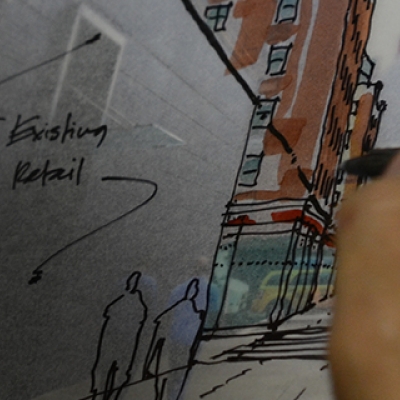By James S. Russell / On July 19th, 2011
I was in Salt Lake City some time ago and was advised sotto voce that it would be unwise to voice a certain term. In Kansas it’s just not done either, a local explained. Bruce Katz, who heads the Metropolitan Policy Program at the Brookings Institute no less, suggested less offensive words.
These unutterable words? Climate change.
In large swaths of the country, bullying by climate-change skeptics has made these words unsuitable for use in civil discourse. “They just start arguments,” people have told me. “People can’t get past those terms. You’ll never reach them,” say most others.

